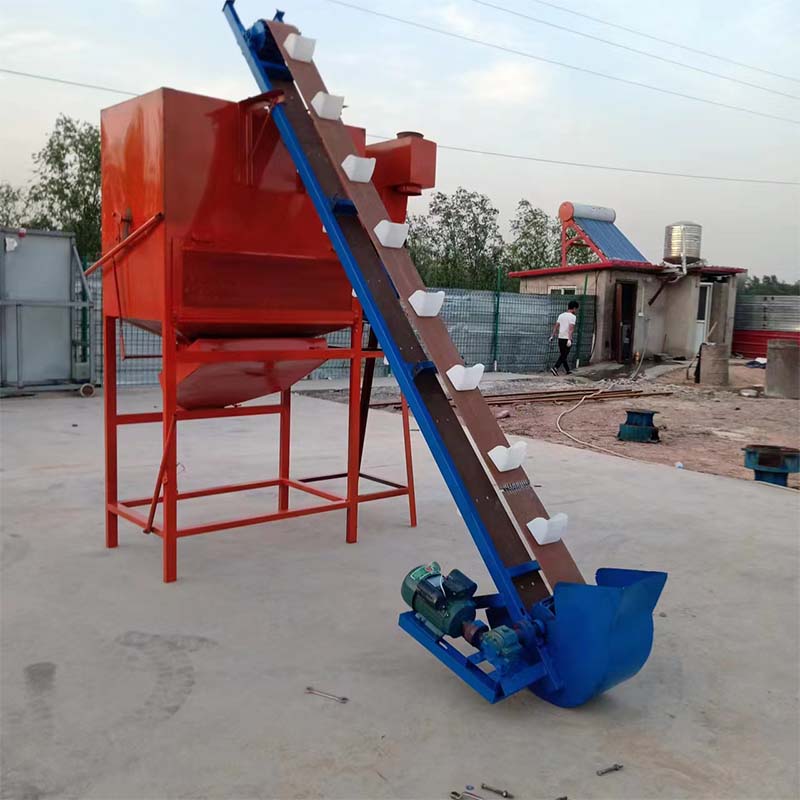Innovative Technologies in Cattle Feed Processing Machines for Enhanced Livestock Nutrition and Efficiency
ágú . 09, 2024 06:25 Back to list
Innovative Technologies in Cattle Feed Processing Machines for Enhanced Livestock Nutrition and Efficiency
Cattle Feed Processing Machines A Vital Component in Livestock Nutrition
In the ever-evolving world of agriculture, the efficiency of livestock production is paramount. As the demand for high-quality meat and dairy products continues to rise, the need for effective feed processing has become more pronounced. Cattle feed processing machines play a critical role in ensuring that livestock receive the right nutrients in a form that maximizes their health and productivity.
Understanding Cattle Feed
Cattle feed can be broadly categorized into forage, concentrates, and supplements. Forage typically includes grasses and legumes, while concentrates consist of grains and protein sources. Supplements are added to meet specific nutritional needs. Properly processed cattle feed increases digestibility, enhances nutrient absorption, and ultimately contributes to the well-being and productivity of the cattle.
The Role of Cattle Feed Processing Machines
Cattle feed processing machines encompass a variety of equipment designed to transform raw feed ingredients into a balanced, nutritious diet for livestock. These machines perform several functions, including grinding, mixing, pelleting, and conditioning.
1. Grinding This is often the first step in feed processing. Grinding machines reduce the size of the raw materials, which helps in increasing the surface area for better digestion. The finer the particles, the easier it is for cattle to chew and digest the feed, leading to improved feed conversion ratios.
2. Mixing After grinding, the feed ingredients must be mixed thoroughly to ensure a uniform distribution of nutrients. Mixing machines use various methods, such as horizontal or vertical mixing, to achieve an even blend. This uniformity is crucial as it ensures that each animal receives a consistent and balanced diet.
cattle feed processing machine

3. Pelleting Pelleting machines compress the mixed feed into small, uniform pellets. This process not only makes the feed more palatable for cattle but also reduces waste. Pellets are easier to handle and transport, and they minimize sorting by the animals, ensuring that they consume all the necessary nutrients.
4. Conditioning Before pelleting, the feed can be conditioned with steam or moisture to improve digestibility and enhance pellet durability. Conditioning helps in varnishing the feed particles, making them more cohesive, thus preventing breakage during handling and storage.
Advantages of Cattle Feed Processing Machines
Investing in cattle feed processing machines has numerous advantages. Firstly, these machines help reduce feed costs by maximizing the use of ingredients and minimizing waste. Efficient processing allows farmers to utilize locally sourced feed alternatives, which can be more economical compared to commercial feeds.
Secondly, processed feeds improve animal health by ensuring that cattle receive a balanced diet. This contributes to better growth rates, higher milk production, and overall improved livestock performance. Additionally, well-formulated feeds can help prevent common health issues, such as digestive disorders and nutritional deficiencies.
Lastly, feed processing machines can enhance the shelf life of feed products. Properly processed and stored feeds are less likely to spoil or become infested with pests, which can otherwise lead to significant losses for farmers.
Conclusion
In conclusion, cattle feed processing machines are essential tools in modern livestock farming. They not only streamline feed preparation but also significantly influence the health and productivity of cattle. By investing in these machines, farmers can ensure that they meet the growing demands of the market while maintaining the highest standards of animal welfare. As technology continues to advance, the future of cattle feed processing promises even greater efficiency and nutritional benefits for livestock, ultimately contributing to a more sustainable agricultural landscape.
-
Automatic Feeding Line System - Anping Yize | Efficiency&Durability
NewsJul.29,2025
-
Automatic Feeding Line System - Anping Yize|Poultry Efficiency&Durability
NewsJul.29,2025
-
Automatic Feeding Line System-Anping County Yize Metal Products Co., Ltd.|Durable PP Material&Easy Maintenance
NewsJul.29,2025
-
Automatic Feeding Line System-Pan Feeder Nipple Drinker|Anping County Yize Metal Products Co., Ltd.
NewsJul.29,2025
-
Hot Sale 24 & 18 Door Rabbit Cages - Premium Breeding Solutions
NewsJul.25,2025
-
Automatic Feeding Line System Pan Feeder Nipple Drinker - Anping County Yize Metal Products Co., Ltd.
NewsJul.21,2025






